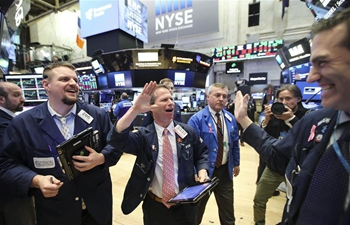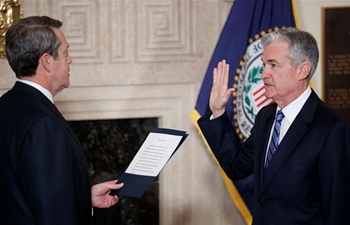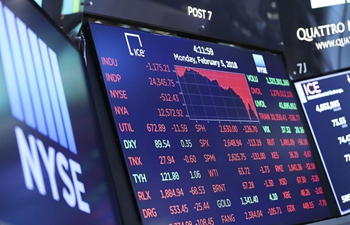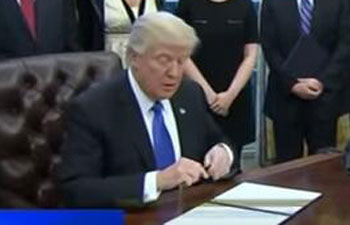BEIJING, Feb.7 (Xinhua) -- The Trump administration's obsession with protectionism and its trade measures against countries like China miss the root cause of U.S. trade deficits, and will probably make the United States a loser in trade wars, a U.S. economist warned in a recent article.
In his Project Syndicate article "How to Lose a Trade War" published on Jan. 26, Stephen S. Roach, a senior fellow at Yale University, said the protectionist approach taken by the United States "could very well spark retaliatory measures that will only exacerbate the plight of beleaguered middle-class American consumers."
"This is exactly how trade wars begin," he said.
Roach pointed out that China is a clear target. On Jan. 23, Washington announced a series of tariffs on the import of solar panels and washing machines under the outdated Section 201 of the Trade Act of 1974. The move primarily targets China and South Korea. "Significantly, the move could be the opening of salvo in a series of measures," he said.
However, the moves could lead to the U.S. losing trade wars, the economist cautioned, listing three reasons.
First, tariffs on solar panels and washing machines are "hopelessly out of step with transformative shifts in the global supply chains of both industries," Roach said.
Second, Roach said Trump's protectionist policies pose a grave threat to "America's already daunting external funding requirements -- putting the pressure on U.S. interest rates, the dollar's exchange rate, or both."
The Trump administration's focus on the trade imbalance with China has made it "miss the far broader macroeconomic forces that have spawned a U.S. multilateral trade deficit with 101 countries," Roach said.
On top of that, it is expected that America's trade partners will retaliate with countermeasures, which would put "export-led U.S. economic growth at serious risk."
He gave two examples. Since China is the third largest and fastest-growing U.S. export market, retaliatory tariffs by Beijing could harm America's major exports to China, including soybeans, aircraft, machinery and motor vehicle components. China could also cut down its purchase of U.S. treasuries, which would seriously affect their price.
U.S. consumers are already feeling the impact. South Korea's LG Electronics, a leading foreign supplier of washing machines, has announced a 50-dollar price increase per unit in response to the tariffs.
Trade wars are always for losers. Perhaps that is the greatest irony for a president who promised America would be the "ultimate winner."
Similar empty promises were made in 1930 by Senator Reed Smoot and Representative Willis Hawley. They led to protectionist tariffs that exacerbated the Great Depression and destabilized the international order.
Sadly, one of the most painful lessons of modern history has been all but forgotten.













